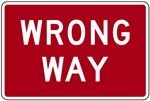To my children:
I didn't write to you on the day that Barack Obama became the Democratic candidate. I was afraid to believe there might be a chance.
I didn't write to you on the night he became the President-Elect.
Fears of what could happen between then and 1.20.09 consumed my joy as words echoed from national news; and actions by local people burning Black churches dampened my hope.
 But, here, now, one full day after he has become our President, I feel that hope has come. Hope is no longer a feeling, it's a reality.
But, here, now, one full day after he has become our President, I feel that hope has come. Hope is no longer a feeling, it's a reality.While our ancestors -- both on my side and your dad's side -- were not brought here against their will, nor were they forced away from their families, and weren't beaten beyond recognition, we shared a similar discrimination. We shared similar treatment of being "not American" or "not normal." Your father and I, years after slavery and the civil rights movement, in our short years, have been treated like foreigners, treated as if we were lazy, assumed to not speak English nor to be educated. Because of the color of our skin, people have assumed we were day laborers, thieves, or exotic figures. Because of the color of our skin, people were surprised when we didn't speak with accents other than that of New York City and Boston.
We were rarely considered American, despite our birth certificates, 14 years of U.S. education, college degrees. When we were dating and married, people rarely assumed that we were dating or married to one another. How could it be - an Asian and a Hispanic?
Times were different for our parents -- your grandparents -- and times are now different for you.
For, no longer is "American" only white. The leader of our country, his wife, his children, his family, his relatives, his in-laws -- they are the America that has always been there, but that has been ignored. Othered. Foreigned.
The President you will come to study in your schooling will be the America that you know. The America that your classmates will know. The America that will be written into your textbooks -- information that I had to read about on my own when my teachers only taught that white folks were inventors, black folks were slaves, red folks were savages, and yellow folks were ... well.. yellow folks.
Because of our new President, your books will include a history of American people that is more than white. it will include stories of families who have crossed the seas -- both willingly and unwillingly -- and who are the fabric of our nation. Those stories have always been there. It isn't a new truth; it is a truth that has always been there. Now, it will be told.
The story of our nation is changing. The story you will come to know will be different from the one I learned. It will be different from the one I experienced.
I am hopeful that your story is the American story that will now be embraced. Your multicultural, multilingual, multiracial, multireligious, and multiethnic family looks like the family of our President.
I see your future in his children; I see my future in you
 My husband and I have been trying to make more connections with families in our area - a task somewhat difficult given that so many of our family members live within a 1 hour radius from our house. Weekends are usually spent hanging out with the same brothers and/or sisters along with their kids. But, we realize that we and our children need to also get to know more people outside of that small circle -- no easy task for introverts like my husband and me.
My husband and I have been trying to make more connections with families in our area - a task somewhat difficult given that so many of our family members live within a 1 hour radius from our house. Weekends are usually spent hanging out with the same brothers and/or sisters along with their kids. But, we realize that we and our children need to also get to know more people outside of that small circle -- no easy task for introverts like my husband and me.